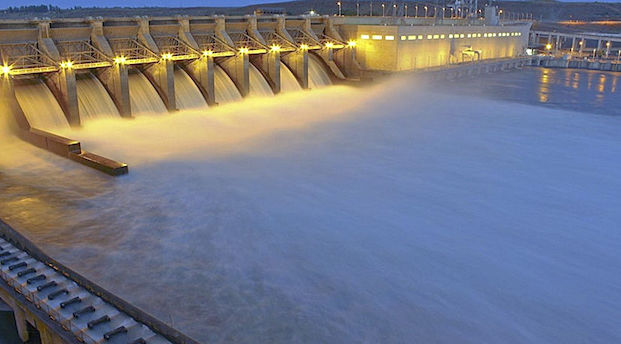forum
library
tutorial
contact

Avoiding History's Big Mistakes
by Darryll OlsenClearing Up, May 31, 2024
|
the film forum library tutorial contact |

|
Avoiding History's Big Mistakesby Darryll OlsenClearing Up, May 31, 2024 |
Public power's unwillingess to deal objectively with the future
does a disservice to those they claim to represent.
 Having read George Caan's OpEd (Clearing Up No. 2159) -- and he certainly has the chops for an OpEd -- I am inspired to add another perspective, having worked in the planning and policy sides of the Northwest power and water managment industry.
Having read George Caan's OpEd (Clearing Up No. 2159) -- and he certainly has the chops for an OpEd -- I am inspired to add another perspective, having worked in the planning and policy sides of the Northwest power and water managment industry.
Somewhat like George, in 1980, I was working on a Ph.D. thesis that assessed the economic and political development of the Northwest Conservation and Power Planning Council (now the Northwest Power and Conservation Council), and what it cold perhaps accomplish. I later in 1982-1983, was a contributor to the Independent Review of failed nuclear projects Washington Nuclear Project Nos. 4 and 5 commissioned by the Legislature. My task was to explain: How did this happen (and who should be killed)?
I later worked in the power-hydro industry, for Argonne National Laboratory, the Pacific Northwest Utilities Conference Committee, Northwest Irrigation Utilities, and a s a contractor for the U.S. Army Corpos of Engineers on several projects (like understanding ocean conditions affecting the fish runs, 1994-1996). My "hobby" was water resources management and water rights, leading me to represent the Columbia Columbia-Snake River Irrigators Association.
Addressed by Caan, what I find disconcerting is public powers' stubborn reluctance to accept that the biological opinion litigation settlement agreement was a court mediation proceeding, not a Bonneville Power Administration rate case or political pep rally. There were no "secret meetings." Along with CSRIA in multiple mediation consultations, public power and industry representatives stated clearly to the litigation principas their preferred SA outcome. That process led to an agreement between the actual Plantiffs-Defendants, far less onerous than the "full system" hydro power impacts under Oregon's and Earthjustice's proposed injunctive relief request, as estimated by BPA's analysis found in Multiple Objective Alternative 4 ("MO4" table below) of the 2020 Columbia River System Operations environental impact statement.

Nor do I find much pleasure in talking with some public-power utility directors, learning they have not even read the actual six-page agreement, instead relying on the bullet points apparently fired-out by the Public Power Council or other industry-politician summaries. Who actully read the agreement? Given the very transparent facts involved, this situation is worse than the lack of caution, by many in public power, that led to trying to build WNP-4/5 in 1976-1978.
I view the path ahead as principally working with the tribes to secure low impact power resources (like strategically located combined-cycle combustion turbines and small-scale nuclear units), and do so under a policy framework that can be evaluated by the NWPCC, which is relevant and represents state governors. Nevertheless, expect change on the lower Snake River system, perhaps affecting decisions on some of the projects within the next 10 years.
But public power's unwillingess to deal objectively with the future does a disservice to those they claim to represent -- like me.
learn more on topics covered in the film
see the video
read the script
learn the songs
discussion forum
